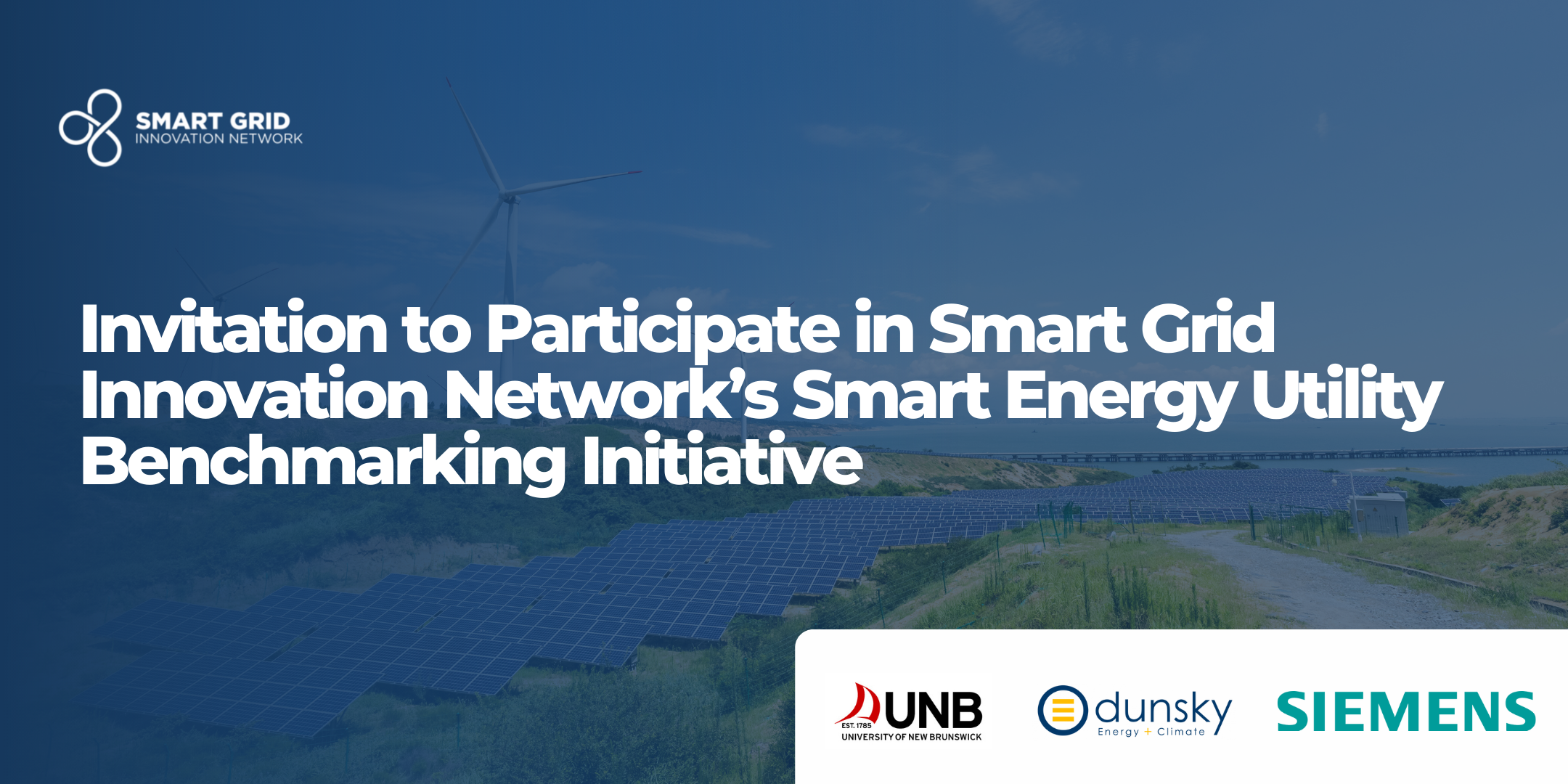
The Smart Grid Innovation Network (SGIN) Canada is kicking off a Smart Energy Benchmarking project through the support of Natural Resources Canada Smart Renewables and Electrification Pathways Program. SGIN recently launched an expression of interest to invite electric utilities of all types and sizes across Canada to participate in this unique opportunity.
Key project deliverables include:
- Benchmark up to 20 electric utilities’ current smart energy development including performance relative to peers and best-in-class practices
- Develop a Capability Model across various dimensions in alignment with Scorecard Metrics
- Share findings, trends, and best practices through a knowledge hub to build industry capacity
Details on the project are provided in the backgrounder below.
Participating utilities receive the following benefits:
- Free assessment of participating utility’s current state of smart energy development
- Potential opportunity to be selected for further in-depth analysis and support at no cost to build your utility’s net zero energy capabilities
- Results will provide specific recommendations on a path forward to advance smart energy capabilities, inform internal planning and regulatory actions
- Opportunity to network, build relationships, share knowledge, and develop a community of practice
While participation is free and voluntary, participating utilities will be required to commit staff time to actively participate in up to four virtual webinars, provide input and feedback, and prepare and share data between Nov 2022 and March 2023.
Expressions of Interest must be submitted by Thursday, Nov. 3 2022, at 5:00 EDT.
Space is limited! SGIN will select up to 20 utilities to participate. Don’t miss out on this opportunity. Submit your expression of interest at the link below.
SGIN and project partner, Dunsky Energy + Climate Advisors, hosted an information webinar to provide more information. Missed the webinar? Watch the recording below:
For more information, please contact Greg Robart, CEO, Smart Grid Innovation Network Canada at info@sgin.ca.
Backgrounder:
In May 2022, Natural Resources Canada awarded the Smart Grid Innovation Network Canada $815,000 to launch the Smart Energy Benchmarking Project. SGIN is working with partners Dunsky Energy + Climate Advisors, Siemens, The Mathematics of Information Technology and Complex Systems (MITACS) and the University of New Brunswick, to support electric utilities across Canada in preparing for the clean energy transition.
The project involves three phases:
- Smart Energy Scorecard: Benchmark up to 20 electric utilities’ current smart energy development including performance relative to peers and best-in-class practices.
- Capability Maturity Model: Develop a capability model across various dimensions, aligned with the scorecard. Several utilities from phase 1 will be short-listed for further in-depth analysis to build on their strengths and develop their capabilities to improve preparedness and performance.
- Smart Energy Knowledge Hub: To disseminate knowledge beyond the immediate beneficiaries of the Smart Energy Benchmarking Project, key insights will be used to establish a Smart Energy Knowledge Hub that allows utilities, regulators, governments, and other stakeholders across the country to learn about emerging trends and best practices.
The goals of this project are to:
- Articulate the current state of smart energy development, including clean energy supply, grid modernization, clean energy use in Canada
- Better understand utilities’ preparedness for required changes
- Share the findings, conclusions, and recommendations broadly to accelerate the clean energy transition through a smart, dynamic, and customer-centric approach.
The project will be guided by an Advisory Committee. Advisory Committee members include electric utility sector representatives, subject matter experts and other interested parties.
Data requirements, confidentiality and security will be addressed as part of this process with participating utilities. Additionally, individual utility assessments and results will only be shared with individual participating utilities. Benchmarking results, key findings, trends, and best practices will be anonymized. There will be no public sharing of individual utility data and results.

